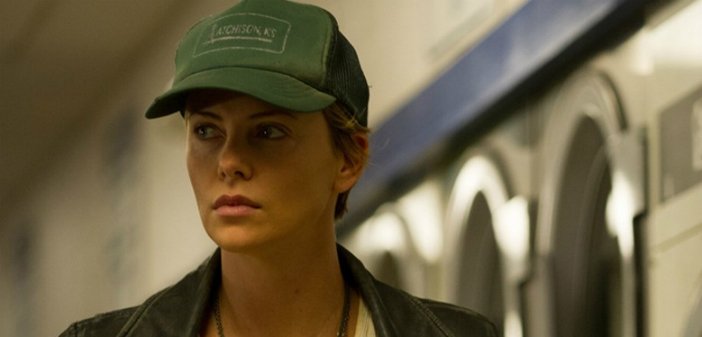One of 2014’s best cinematic offerings was Gone Girl, an engrossing mystery with a stellar cast, helmed by one of my favorite directors. The film was based on a novel by Gillian Flynn, and when I heard that her second book would also be getting the big-screen treatment, I expected more of the same.
Dark Places is the story of Libby Day (Charlize Theron), whose mother and two sisters were brutally murdered in their farmhouse when Libby was a young girl. Libby’s older brother Ben was convicted of the crime, but we immediately get the sense that something might be amiss – especially as we listen while a detective pushes Libby to admit that her brother is responsible, rather than actually questioning the girl about what happened.
And we’re not the only ones who wonder if the wrong person took the blame for the murders – there’s also Lyle (Nicholas Hoult), an awkward and enthusiastic member of a club that meets regularly to investigate old murder cases. The “Kill Club” thinks that Ben was wrongly convicted – in fact, there was no physical evidence against him, and the prosecutor’s case seemed mostly hinged on the fact that Ben listened to heavy metal music in a small town that was terrified of Satanism creeping into their community.
After repeated requests from Lyle, Libby finally decides to visit her brother in prison. It’s the first time she’s seen Ben (Corey Stoll) since his conviction, and after the visit Libby begins to wonder if the events of that fateful night weren’t quite what they seem. But if Ben isn’t guilty, then who is?
Dark Places is more than deserving of its title, especially in the many flashback scenes that find a teenage Ben (Tye Sheridan) accused of an atrocious act, even before the murders. But these accusations pale in comparison to the things Ben is willing to do in order to impress Diondra (Chloe Grace Moretz), a local rich girl with whom Ben is carrying on a secret romance. And let’s not forget Ben and Libby’s father, Runner (Sean Bridgers), an abusive drug dealer who only visits the family home to steal money from their mother (Christina Hendricks).
As far as the film’s story goes, there’s not much to complain about – the problem lies solely in the execution. Adapted for the screen and directed by Gilles Paquet-Brenner, it feels like some crucial elements of Flynn’s book never made it off the page. Very few of the characters are developed beyond single-note archetypes, and the script paints our heroine as caustic, abrasive and almost completely unlikable. The only person worth rooting for is the mother, and we know she’s doomed from the very beginning, which makes it almost pointless to become invested.
That being said, the entire cast of Dark Places deserves a tremendous amount of credit for making the most of the material they’ve been given – but I can’t help but wonder if this story would have fared better under someone like Gone Girl director David Fincher, who has plenty of experience with less than savory subject matter. I don’t doubt that Flynn’s novel is a much better medium for this particular tale – and perhaps in those pages, the true events surrounding the murders, as well as Libby’s discovery of the truth, wouldn’t seem as implausible as they do here.




